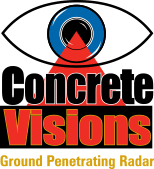You hate slipping and falling on icy pavement outside of your home or office, you loathe skidding around on the road after a cold night, and you definitely hate dealing with the final product of ice melt—concrete corrosion. While ice melt does a great job at preventing ice from forming and refreezing in snowy areas, it wreaks havoc on your concrete. Here are some tips for making a concrete friendly ice melt that won’t result in major concrete corrosion.
Hold On, Why Shouldn’t I Use Salt Ice Melt on Concrete?
Using sodium chloride or rock salt on concrete leads to spalling, or, concrete corrosion. Over time, small holes, cracks, and breakages will start to appear. Eventually, these small cracks and holes can turn into huge potholes and cracks in the road that require major repairs. To get a little more scientific, there is a reason why these cracks appear that lies below the surface. Concrete is porous, which means that it can absorb moisture easily. When snow and ice melt, even as a result of ice melt, the melted water enters the concrete. Different ice melts freeze at different temperatures, and when they do freeze, the water and ice melt that was taken into the pavement will expand. This is called concrete corrosion.
What is Concrete Friendly Ice Melt?
First, think of what temperatures your area normally drops to over the course of the winter. If you stay mostly above freezing and only dip slightly below, plain old sodium chloride might be fine. If you live in Maryland, chances are you need something that can last until temperatures are 0 degrees or below. Magnesium chloride has a much lower freezing point, so it can be safe on concrete throughout the winter.
Choose Concrete Visions for Your Concrete Repair Needs
Concrete Visions has over 12 years of experience and expertise in concrete scanning and we know how to detect any problems lurking beneath the surface. We use ground penetrating radar accurately and expertly and are familiar in many other methods that can be used when appropriate like concrete x-ray and electromagnetic conductivity. We are also very familiar with the latest construction safety techniques and train all of our workers to do their work quickly, accurately, and safely. If you would like to learn more about how we can help you, give is a call at (410) 766-2210 or visit us online. For more articles and tips, follow us on Facebook, Twitter, LinkedIn, and Google+.

